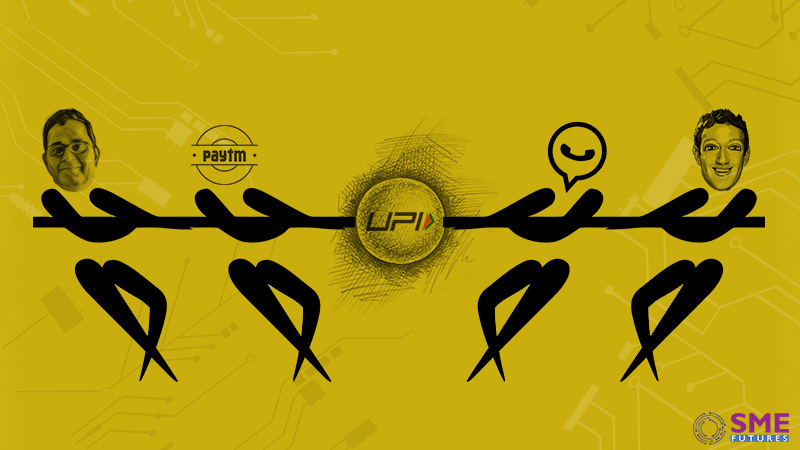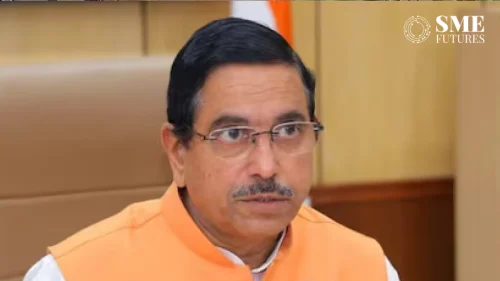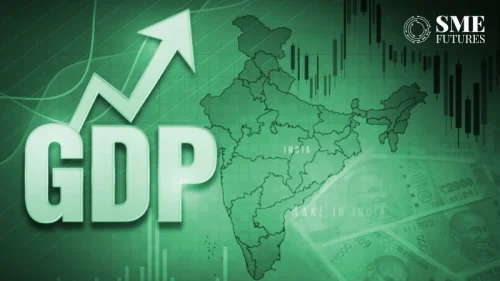From using picture of Prime Minister Narendra Modi in its advertisements to chest thumping and taunting competitors at the company’s annual party, chief executive officer and founder of mobile payments firm Paytm Vijay Shekhar Sharma is no stranger to controversies. One of the latest salvos he fired at a perceived opponent was criticising global instant-messaging giant WhatsApp on what he termed was unethical.
In a tweet on 14 February, Sharma criticised WhatsApp, which has entered the payments space in India. He alleged that WhatsApp was flouting the rules of level-playing field, adding that even National Payments Council of India (NPCI) was letting it go noticed.
To be fair, it all started with an article published by The Ken. The article spoke about how the NPCI had amended the Unified Payments Interface (UPI) guidelines to create exceptions for the growth of foreign firms WhatsApp and Google in India. This is critical particularly at a time when India is moving towards becoming a digital economy and the government is promoting digital transfer of money and cashless transactions.
With the entry of global cash-rich behemoths like Whatsapp and Google, the sector is expected to see another round of bloodbath. With billions of marketing dollars at hand, it will be interesting to see which company is able to compete with the marketing muscle of Facebook and Google in India.
Currently India has over 460 million internet users and 300 million smartphone users. This number is likely to grow exponentially to 800 million by 2020.
Enter VSS
Sharma took to Twitter to quote the story alleging foul play by the NPCI and Facebook.
“Microsoft did this to open web standards. WhatsApp is doing this to UPI, openly in front of everyone,” he added.
Beginning of a Twitter War
In no time, hell broke lose. Social media was flooded with tweets from Paytm’s rivals, criticising Sharma’s stance. According to Mobikwik founder Bipin Preet Singh, Paytm had also refused to allow Mobikwik as a payments option on its e-commerce site Paytm Mall.
Another person to slam Sharma was Amrish Rau, founder of PayU. He tweeted, “Let’s get this clear, Whatsapp and UPI being targeted. Just reminds that even $ Billions are scared of great UX.” “It is great to see Chinese companies are standing up against anti India WhatsApp (sic)” adding that “If you can’t beat them, then bitch them”.
Sharma, in his defense, soon came back on Twitter to do the course correction. This time he stressed that his comments were being taken out of context and that this was not the case of a domestic company opposing a foreign rival.
“Quite a few of us haven’t yet understood the matter and are passing such colored judgment. I wanted to make it clear it is in no way – Indian vs foreign company conversation,” he said on Twitter.
Indian payments ecosystem currently follows the two factor authentication process. Sharma stressed upon the aspect of security given the high risk segment payments is. He alleged that Facebook-owned WhatsApp’s UPI payment platform had security risks for consumers and was not in compliance with the guidelines. According to him, since there was no login feature in Whatsapp, it posed a heavy security issue.
He also said that he would approach the NPCI, and even higher authorities, if required to look into the issue and the unfair leverage, which according to him, was granted to WhatsApp.
If that was not all, Sharma went ahead and called Facebook “the most evil company in the world”. He accused that Facebook first tried to dupe India by free internet and now it was flouting guidelines and bringing out an app that does not need three-step authentication to make payment.
Evil or Not
It is a larger debate what the character of Facebook is. While Sharma’s context here is a little different, a large number of global media reports have questioned the mind control tactics of Facebook. Leaked documents have stated that Facebook can identify when teenagers feel “overwhelmed” or “stressed” and can potentially utilise this information to sell targeted advertisements. It has been argued that Facebook exploits vulnerabilities in human psychology.
Recently a former Facebook executive, Chamath Palipapitiya, who was the vice president of user growth at Facebook, also crticised the social media firm, arguing that he developed “guilt” for his work on forming tools that were “ripping apart the social fabric of how a society works”. He left the company in 2011 and calls the methodology “dopamine driven feedback loops”, which is filled with misinformation and mis-truth.
While Facebook would be an extreme example of how a person’s digital footprint can be used to potentially sell them products or services, targeted advertising is nothing new. This is something not just being done by the likes of Facebook but by every website and app that targets customers digitally.
Payments War
However, for now the war is different. Paytm, which so far had an absolute majority in the online payments space with over 300 million registered users, is expected to face a real challenge from WhatsApp.
In July last year, WhatsApp announced that it had crossed one billion daily users mark globally. While there was no immediate clarity on how much of this was constituted by the India market, India is considered to be WhatsApp’s largest markets. According to multiple reports, WhatsApp currently has about 300 million subscribers in India. Add to it the fact that this app has unparalleled acceptance in India’s smaller towns and rural areas. Today, almost every Android phone user uses WhatsApp, which has become a default messaging platform for smartphone users, unlike iPhones, Facetime is a good competition.
Despite these impressive numbers, WhatsApp may still not be as successful with its payments option as it would expect, since payments is a serious business in India. Indian customers are conservative when it comes to using online media for making transactions and purchases. This fact is vouched by the fact that India is known to have low credit card penetration: till the middle of 2017, the country barely reported over 30 million credit card users.
Rise in Digital Payments
While Paytm has done well in establishing itself as a payments and transaction platform, WhatsApp is still seen as a chatting app. It will take a lot of time, effort, money and rebranding exercise for WhatsApp to portray itself as a payments platform in India.
Paytm is backed by one of the world’s biggest investors — SoftBank. The Japanese firm recently invested USD 1.4 million in the company. Paytm also did a secondary round last month, which saw its valuation soar to USD 10 billion.
One97 Communications Ltd, the parent firm of Paytm, reported a revenue of Rs 813.88 crore for the financial year 2016-17. On the other hand, Nasdaq-listed Facebook, which takes into account the calendar year, reported a revenue of USD 40.7 billion in 2017. According to statistic portal Statista, social network segment helped Facebook grab USD 15.9 billion net income and a majority of the company’s revenue was generated through advertising.
Digital Payments Space
According to investment banking firm Credit Suisse, the entry of global firms is expected to grow India’s digital payments sector by five times to USD 1 trillion by 2023. It further adds that the data usage by the smartphone users has increased to five to 10 GB per month from one GB an year ago.
This is only an opportunity available at the level of individual users. Facebook has already launched Facebook for Business app, which is targeted at internal communication of small and medium enterprises. It can be expected that at some point, Facebook/WhatsApp will look to integrate their different offerings to create a sustained revenue stream. What can be a better place to do that than India with its massive usage of Facebook, WhatsApp and its new-found focus on digital economy?













